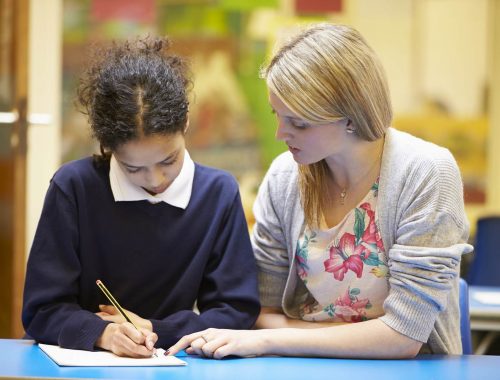Teaching requires passion
Every good memory of school that stands out to me is music related. From singing Howard Goodall’s Requiem in St Anne’s Cathedral as part of the choir, to being in the chorus of every school production we put on. All the teachers I remember fondly are those who took all my extra-curricular activities. Their dedication is what has inspired me to become a teacher.
Today I will be using the Gibb’s reflective model to process the first lesson I taught. The steps of the Gibb’s model is a way to simplify mindfulness and reflection into a clear, systematic structure. (Devet, B. (2020))
I began my observation at Laurelhill Community College in September 2022. I knew I wanted to continue my studies by completing a PGCE once I’ve gained my Bachelor of Music. I didn’t need a CV or an interview for my work experience as I was accepted by the school on a character reference.
Once I had been given the position, as part of the induction process I sat down with my work experience supervisor Gareth and had an informal discussion about what I wanted to achieve from the placement and what I could offer the school in terms of extra-curricular contribution. After this discussion we decided I should teach a Year 8 class and a lower ability Year 9 class. The targets I assigned for this placement were to develop my confidence to stand in front of a class and classroom management. With piano being my primary instrument, and violin and voice being my secondary instruments I wanted to help out with as many aspects of life in the department as I could. We settled on assisting with Senior Choir and this year’s production of ‘Footloose’.
The first half of term I observed throughout the day, team taught Year 12 GCSE Music composition and performance and assisted with Key Stage 3 classes. This gave me a clear understanding of effective classroom management; from the professional language I should use in front of the pupils and the correct way to quickly deal with any behavioural issues before they escalate. After half term break I started to teach my own lessons.
Using methods from ‘The Magenta Principles’ (Hughes, M. (2014)) I was able to plan my first lesson for Year 9. This class is a lower ability class who often get distracted if not engaged; if they lose focus it can be difficult to get it back. My learning objectives for the lesson were, what is pop music, and 1950s and 1960s music. The starter activity was a class discussion to engage thinking on the topic, I opened with the question what is pop music and moved on to discuss how music became popular. The children interacted well and engaged with the topic enthusiastically, demonstrating independent thinking. When they started shouting out displaying undesirable behaviour I redirected the energy by asking them to copy the notes into their booklets. I used the same approach with 1950s and 1960s music. I talked with them about each decade and gave musical examples. After copying the notes into their booklets I handed out whiteboards. Using lesson one from ‘The Magenta Principles’ (pg 19) as a guide I played a mix of 1950s and 1960s songs. I got the children to write what decade they thought it belonged to. If someone answered the 50’s but another answered the 60’s I got them to each explain why they believed their answer was correct. I was then able to explain the correct answer and the ways to identify which decade was which. For the plenary I asked students to identify stylistic features of the decades we had studied today, they had to answer correctly before leaving the classroom. After the lesson I asked the teacher for feedback, in teacher style they gave me two stars and a wish. They said my classroom management was great, and the use of written and practical activities kept the children engaged. However I was too informal with language, in my use of words such as “yous” and “yousins”.
Overall I feel the lesson went very well. The children were engaged, and when the class got overexcited I got them to write in their booklets to gain back focus. My balance of written and practical activities was highlighted. This is a beneficial technique for lower ability study as it allows the children the opportunity to talk through and engage with the content before writing it into their books, allows a sound understanding of the topic and the concepts to be investigated further than what is provided on the PowerPoint. I agreed with the teacher that I was too informal, trying to talk to the children as if they were my friends, not pupils. This is something I hope to work on throughout my work experience. The children started with answering with their hands up, however as the lesson went on they started shouting out, I addressed this when it first happened. However after a while they continued to shout out in class and I didn’t address it. This can be helped if I had more confidence in myself as an authority figure, and seeing myself as a teacher instead as a student completing work experience. In my next lesson I need to take more time and think before I speak, to avoid vocal disfluencies and informal language.
From getting to know the children from the classroom, to the choir and school production I’m involved with has cemented my love for teaching. Music is something I’m passionate about, and to be a teacher, especially in the Arts I feel you need to be passionate. With all of the unpaid extra hours I see the Music and Drama departments put in, you need to have a love of music and have an interest in supporting the children as they become young adults. I love music, and to be able to pass on my love to the next generation is something I’m excited to achieve.
References
Devet, B. (2020) ‘Gibbs’ Reflective Cycle for Writing Center Training’, WLN: A Journal of Writing Center Scholarship, 44(9/10), pp. 18–25. Available at: https://search-ebscohost-com.queens.ezp1.qub.ac.uk/login.aspx?direct=true&db=eue&AN=142995242&site=eds-live&scope=site (Accessed: 16 November 2022).
Hughes, M. (2014). The magenta principles : engagement, depth and challenge in the classroom. Cheltenham: Magenta Principles Limited.
You May Also Like

Interview a New You! – Becoming an Interview Guru
24 February 2023
Working with a Production House
30 November 2022
